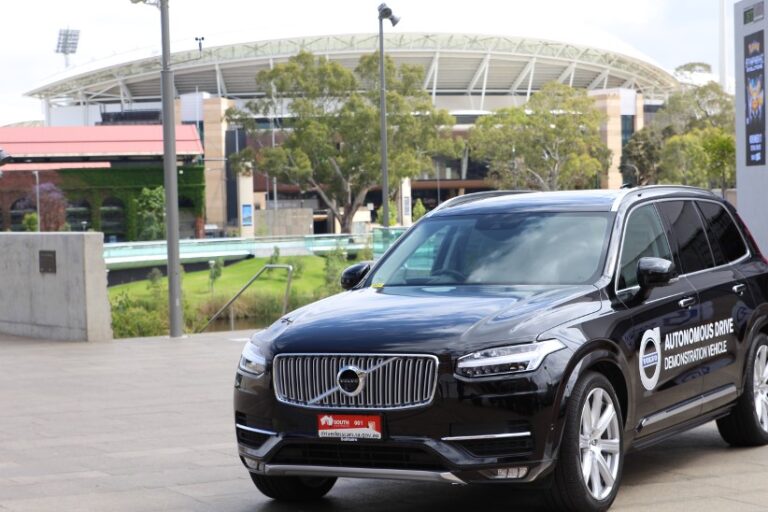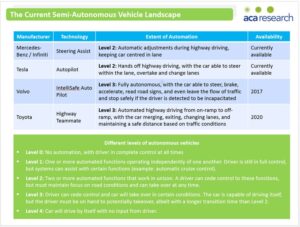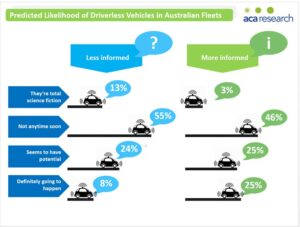– By Steve Nutall –
Australian motorists have moved one step closer to getting behind the wheel of a driverless car with the first on road trial of this ground breaking technology taking place in Adelaide last year. Much of the debate has focused on whether consumers are ready to embrace the technology, but ACA Research wanted to take a look at these issues through the lens of Australian fleet managers.
Looking to the future, both Volvo and Toyota have announced plans to progress beyond this, with Level 3 vehicles that allow full autonomy across more diverse driving situations expected to be in production within the next five years.
The widespread adoption of autonomous vehicles would undoubtedly have a transformative effect on nearly all aspects of transportation in Australia. Entire business models and professions would be created, transformed, or eliminated as robotic taxis and driverless freight become possible.
The potential benefits to businesses operating commercial fleets are also significant and include increased driver safety, productivity improvements, reduced fuel and vehicle maintenance costs and higher vehicle utilisation.
Findings from ACA Research
In anticipation of driverless vehicles being with us sooner than we think, we recently spoke to 220 fleet managers, who represent a significant segment of the potential market, about their understanding of these technological developments, and their views on the potential business benefits.
Around half of the fleets we interviewed said they are not very familiar with the debate about driverless vehicles with the other half more informed, either reading media articles or actively tracking developments.
Accordingly, the more informed fleet managers are much more likely to think driverless vehicles will definitely become a reality in Australian fleets whereas the less informed are more likely to think this will not happen anytime soon.
Turning to the business impacts of driverless vehicles, the top three expected benefits are improved safety, enhanced driver productivity and lower fleet repair costs.
The more informed fleet managers are more likely to regard these as the potential business benefits of driverless cars. At an overall level, customer experience improvements are ranked as the lowest business benefit.
The economic value of these benefits should not be underestimated. In particular the productivity gains valued in terms of time savings are potentially significant.
Assuming the average Australian car driver travels 15,000 kilometres a year at an average speed of 60kph, each vehicle holds one person and there are 13 million registered vehicles on the road. This translate to 195 billion kilometres a year, equivalent to 3.25 billion hours.
Let’s conservatively assume that the value of time spent doing what you want in the car instead of not driving is $2 per hour, this would imply $6.5 billion of time savings every single year. That’s before we value the cost of fatal and non-fatal crashes, so the sums quickly add up. It’s therefore not surprising to see that some of our political leaders are getting excited about the future prospects of driverless cars.
While we keep our eyes on the road ahead, it’s also a good to keep a strong grasp on the here and now and trends affecting the current market.
ACA Research regularly conducts research with consumers and businesses across the Australian automotive market. Click here to download our latest reports on market trends or contact us if you have any specific research needs you wish to discuss.









